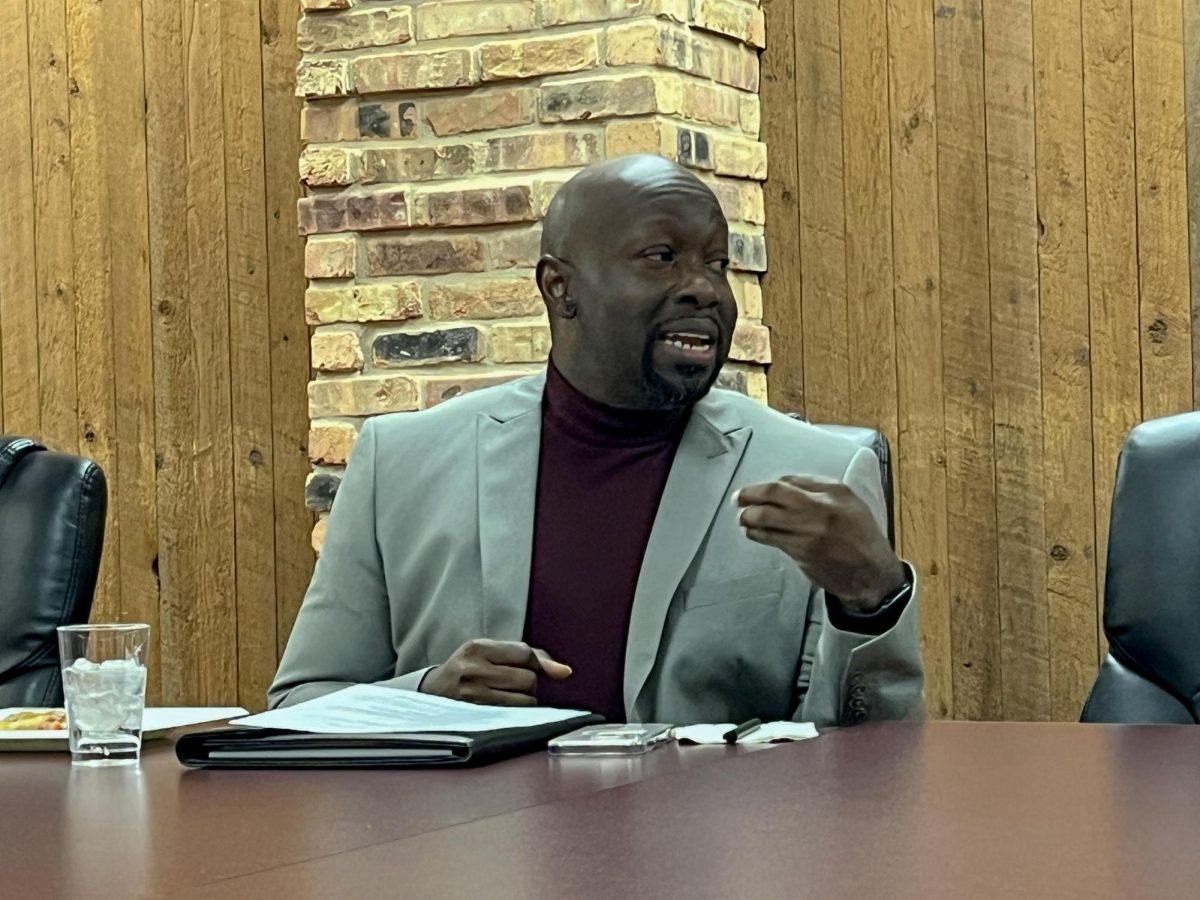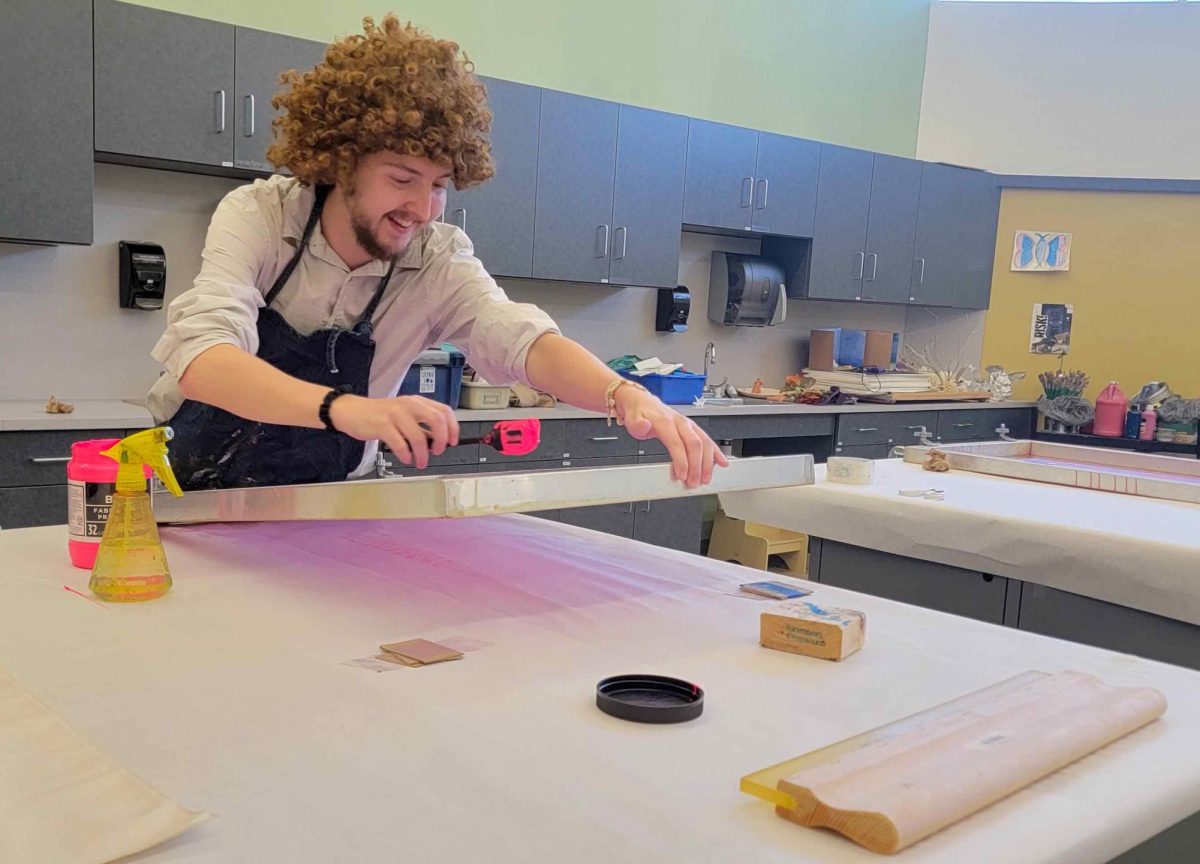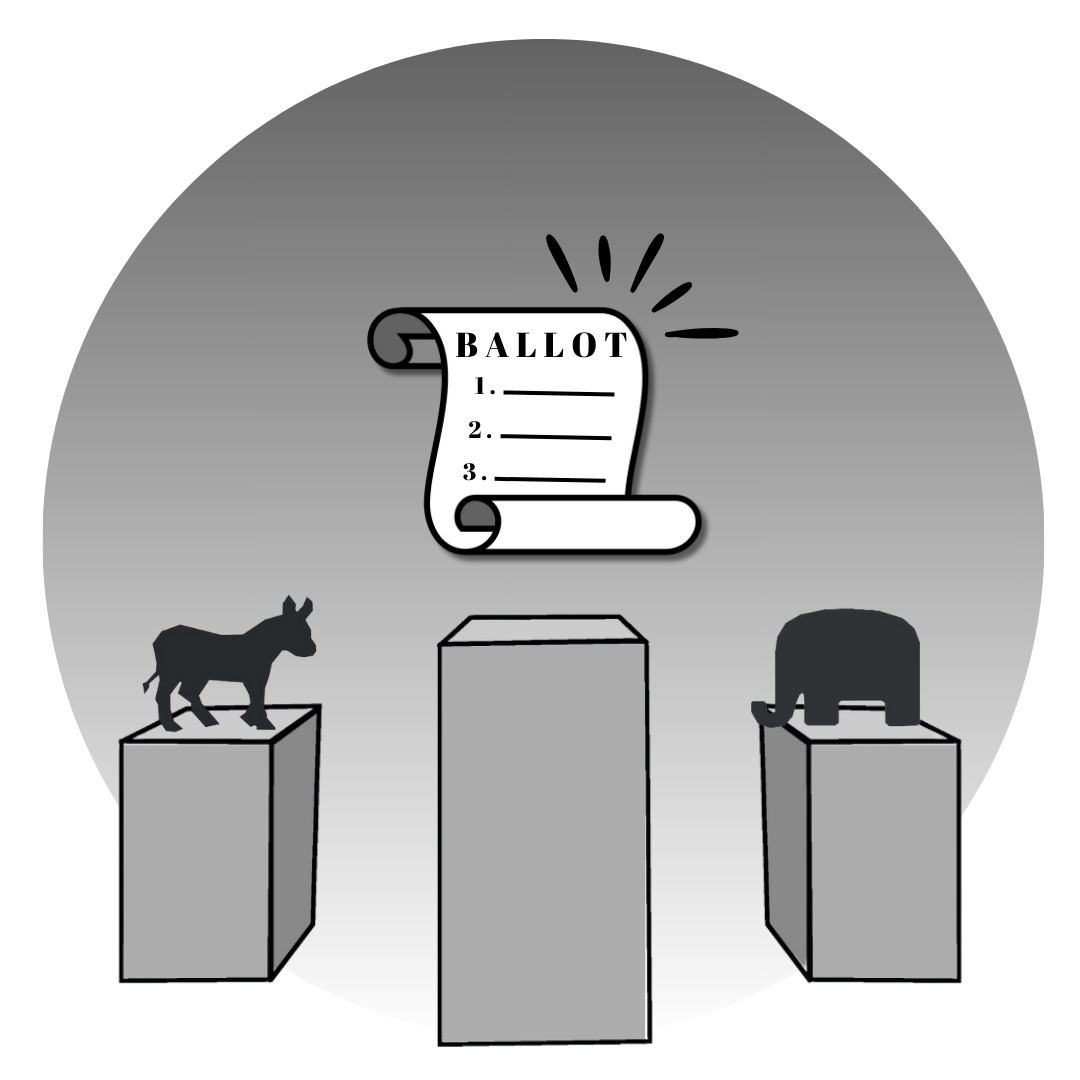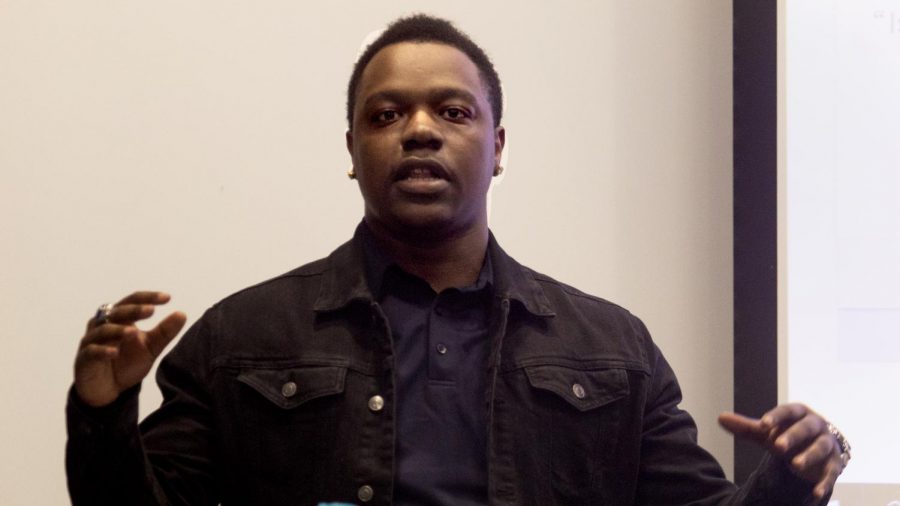‘Know Your Rightz’ held in Lumpkin
Michael Miller, the health promotion coordinator for Eastern’s Health Education Resource Center, discusses the cons of recreational marijuana use before watching a TED Talk on the benefits of medical marijuana during “Know Your Rightz: Marijuana” in Lumpkin hall auditorium on Tuesday night. Miller also discussed the social implications of marijuana use, such as employers not allowing workers who have marijuana in their system to work in the workplace.
February 25, 2020
Students gathered Tuesday night to learn about marijuana legalization and how it will affect their lives both on and off campus.
Michael Miller, a graduate student studying college student affairs and the health promotion coordinator at the Health Education Resource Center, spoke about everything from drug testing to medical marijuana during “Know Your Rightz,” an event for African American Heritage Month.
Even though Illinois state laws have changed regarding recreational marijuana usage, Eastern’s policies remain the same.
Students using or in possession of marijuana on campus will be fined and required to take educational courses, as well as subjected to drug testing later on if they are under 21 years old.
If there are multiple offenses, students may face academic probation for a full semester.
Off campus, only adults 21 years of age or older are allowed to ingest marijuana, but only in certain circumstances.
Marijuana use is prohibited in public spaces, in motor vehicles and on school grounds, as well as around people under the age of 21 or on-duty bus drivers, police officers, firefighters or corrections officers according to illinoispolicy.org.
There are multiple kinds of drug tests that will find marijuana use, including urine, blood, hair and saliva samples.
Depending on the frequency of use, these tests can find trace amounts of marijuana in the system up to six months later.
Even with new state laws, some workplaces will still ban employees from using.
Marijuana can have both positive and negative effects on health.
Miller played a video by Doctor David Casarett, who shared his observations about the benefits of marijuana which he discovered through discussion with other doctors, observation of patients consuming medical marijuana and his own experiences interacting with dispensary employees. Short term use can cause mood swings, impaired body movement and memory, difficulty thinking and problem-solving, hallucinations, delusions and even temporary psychosis.
Longer term use can increase risk of psychotic disorders, chronic bronchitis and likeliness of dropping out of school.
In rare cases, users have experienced cannabinoid hyperemesis syndrome, which is a condition which causes repeated and severe bouts of vomiting.
However, marijuana use can be beneficial in relation to cases of chronic pain, depression, anxiety, epilepsy and other chronic illnesses.
While from a technical standpoint marijuana is not addictive, withdrawal can affect some people.
Heavy users have reported reduced appetite, irritability, insomnia, depression, stomach issues and cravings for marijuana when they do not have access to the drug.
Luke Taylor can be reached at 581-2812 or egtaylor@eiu.edu







































































